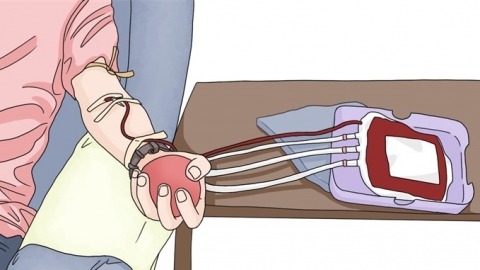Is there any risk in donating blood?
Whether blood donation poses any risk mainly depends on the donor's physical condition. If the donor is in good health, there is generally no risk involved. However, if the donor is physically weak, there may be potential risks. A detailed analysis is as follows:

If the donor is in good health, does not suffer from infectious diseases such as HIV, hepatitis B, or hepatitis C, and has not recently undergone any procedures that may increase infection risks, such as surgery, tattooing, or piercing, and if the donation is performed at a legitimate facility where strict aseptic techniques are followed during blood collection, then blood donation is generally safe. Furthermore, the body's blood compensation mechanisms can quickly replenish the lost blood, causing no long-term impact on the donor's health.
However, if the donor has a weak constitution, is malnourished, or donates blood too frequently, the loss of a certain amount of blood after donation may lead to symptoms such as pallor and dizziness, indicating physical weakness. Before donating blood, donors should undergo a comprehensive health examination to ensure they meet the eligibility criteria for blood donation and to avoid risks caused by poor physical condition.
After donating blood, it is advisable to rest appropriately, avoid strenuous exercise and heavy physical labor, and pay attention to nutritional recovery, such as consuming protein-rich foods like lean meat and milk, to promote physical recovery.





